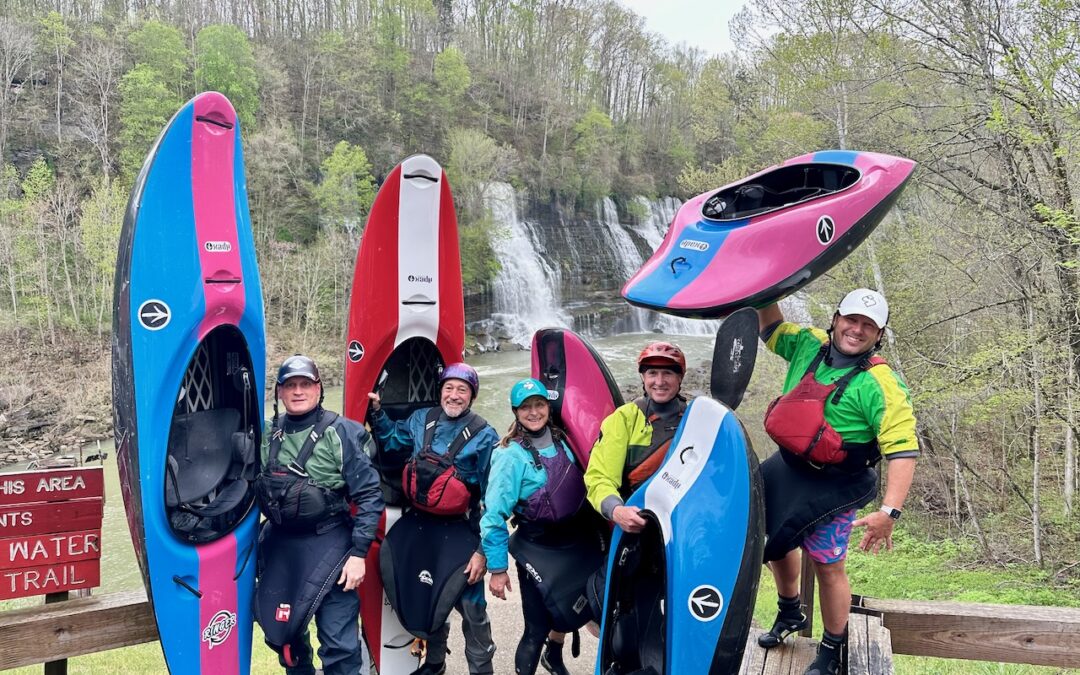Kristine gave me a T-Shirt on my 60th birthday that says, “It is weird being the same age as old people”. My clinics have an average age of 55-60 so far. I have had a couple in the 30’s and some in the 70’s, but mostly 50’s- and 60’s. Drilling down what I and Apex Watercraft bring to paddlers into a few words was an exercise I did with James McBeath a year ago and we felt that “Enhance and Extend Your Paddling Career” covered it best. Since the most obvious and largest immediately enjoyed benefit of Apex is how lightweight the kayaks are it is enjoyed by anyone at any age and everytime you pick up, load, unload, carry, or paddle the boats. My personal trademark has been longevity, it seems, for a long time. When I won my second world championships at age 37 that was a big deal. At 43 my 4th, and making the USA Team last year for the Columbus Worlds at age 59 it has just become, OK, so the old guy seems to just keep going. As paddlers get older many are turning to me with questions, and looking for any insight on what I may be doing to stay fit, injury free. That is the “Extend” part of the equation. Again a lightweight kayak that weighs 1/2 of a plastic boat extends paddling careers. You don’t hear people complain about the weight of their plastic boats often, and you don’t see the people who simply don’t go paddling because the thought of picking up, shouldering, and carrying one is just too much for them. The Silent majority. What I am seeing is faces light up when they pick up their new Ringer or Rebound and so much burden was removed from the entire kayaking process and it registers right away. They look at their roof racks and can immediately see that loading just became a non-issue.
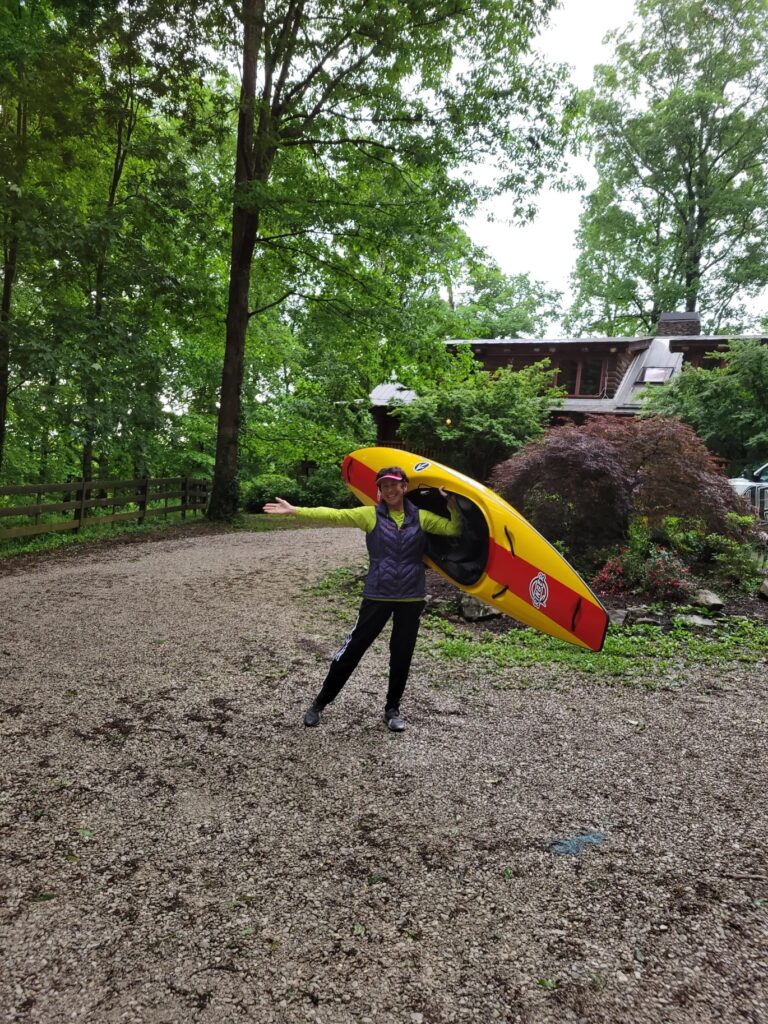
Donna hoists her Ringer with a smile.
I am guessing that this is one of the reasons why their are so many Apex buyers who are older. It is a no-brainer for them.
During the clinics we focus on the skills that each paddler needs which is typically rolling and bracing skills and strokes and concepts skills for starters. Few people really ever get training on the basics, and their most basic skills or lack of is either their performance hindering or performance enhancing foundation. There is a lot to cover, and enough content that getting through it all in 4 days isn’t easy. I recognized that 30 years ago and weaved in methods for the students to learn to self-coach, so that they could continue to progress on their own. Not being 100% confident in the roll is the biggest deterrent for many in paddling. Getting over that hump, feeling confident in hitting lines, and of course being confident enough to surf a wave or hole really adds to the fun factor. That is my goal with each student, to increase their ability to do fun things, and eliminate the fear of the unknown, and fear of failure by helping them achieve where they were not before. The combo of the two is simply a much more comfortable, rewarding experience that they can progress off of and look forward to each outing.

Tom on his way down to the falls
In my intermediate/advanced clinics we were still working on rolling and bracing, of course as even long time boaters occasionally lose their roll and need to get it back. We also did a lot of surfing, hard ferries, river running moves, ran waterfalls, and the basic EJ’s strokes and concepts program. Advanced strokes and concepts comes when you can do all of the strokes properly in flatwater, then we apply them to whitewater which is where they really shine. Little known fact- on most river running moves I can do with 1 stroke faster with more precise control what it takes 99% of paddlers to do in 5 strokes. That is just because best practice technique isn’t widely known, and while I have made the information available, it isn’t learned or taught broadly. The good news is that you don’t have to know it to have fun on the water. However, it really isn’t much harder to learn the most effective modern strokes and concepts as it is to learn how most people have taught it since the 70’s.

Gwenn Running the “Spout” at high water.
I have one more window to teach a clinic over Memorial Day weekend (23-26-Thursday-Sunday) before heading to Colorado for the GoPro Games. It will be a beginner/intermediate clinic. Depends on who signs up next. My first student is good as either intermediate/advance or beginner/intermediate. 5 spots open as of today. Anyone wanting information email me at eric@apexwatercraft.com .
Longevity Training- “Extending your paddling career”. Each clinic we have discussions, and we go into my weight room to share my routine for shoulder protection, total body preparedness, and rehab concepts that are hard to find through PT’s, or Doctors in a cohesive way that you can just do and get results. I almost wasn’t able to get to the 92 Olympics due to how hard it was to get the right ways to fix my injured shoulder. Multiple injuries over my many years of full time paddling and exposure to what others were doing for theirs has me well versed and I consider myself lucky that I actually pushed through all of the BS from so many doctors and PT’s to finally narrow down what works and why. This information is worth its weight in gold, to me, and is certainly one reason my body is almost always injury free now and if I do hurt something I can get it back to 100% fairly quickly.
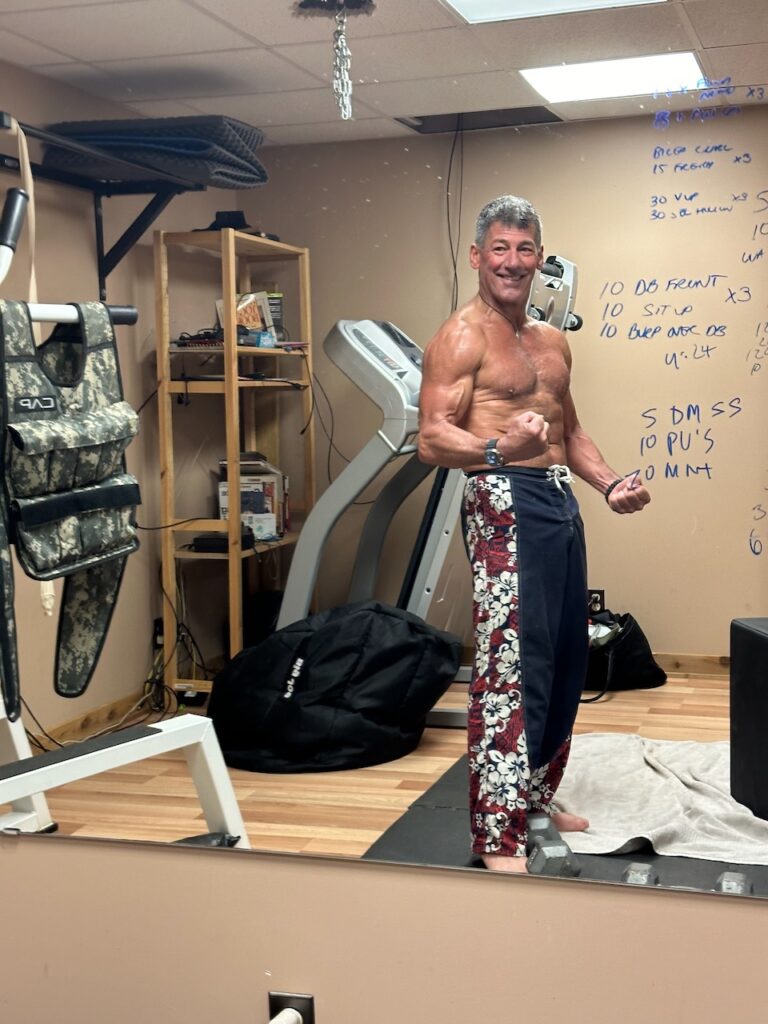
My weight room is used to enhance and extend my paddling career.
One of the things I really enjoy is how everyone seems to unplug by day 2 and just enjoy hanging out, playing games (disc golf, Axe throwing, Cornhole, shuffleboard, ping pong, etc.), having discussions in the hot tub, etc.. Meaningful conversations with new friends is very refreshing in the digital age. I haven’t had to enforce the “no phones at the dinner table” rule, as everyone seems happy to be present on their own.

good conversation, good food, great times
I have had either Joe Ball or Tom Hehnen help me as an assistant during my clinics. Super fun having them on board and I think the students really appreciate them. Joe is my customer service manager, but also flies a drone, which got us some good footage. Tom manages the factory/warehouse and found us a good stretch of water to run this last clinic during the floods. I am lucky to have both of them in the Apex Party.
Some of the awesome folks I have been lucky enough to coach this spring.


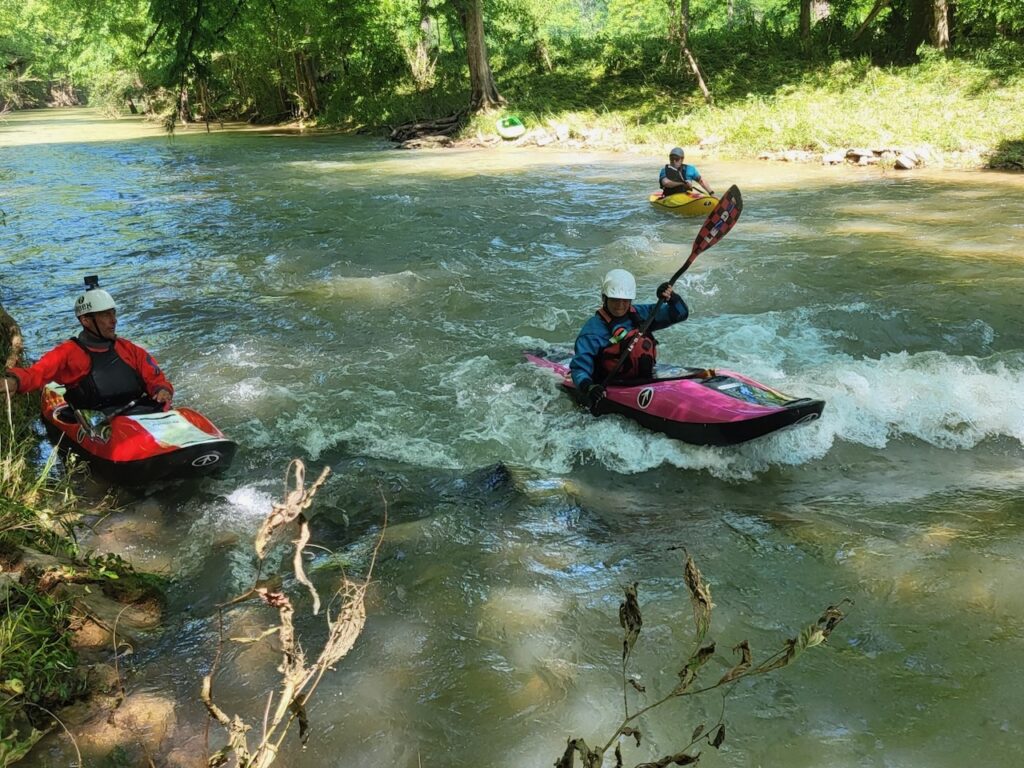




In the next few years the average age of an Apex paddler will go down some. Also in my clinics. Once somebody reaches the age of 50, 60, or 70 they become more open to coaching or other kinds of help to improve their paddling experience. There are plenty of younger paddlers, that recognize the value of getting instruction from me. The combination of the cost and the fact that they are already feeling pretty good on the water often doesn’t provide enough incentive to pull the trigger for most of them. I know from years of training my teams (Team Wavesport and Team JK) that the second you realize there are important things you don’t know and they are demonstrated to you, you want to learn them and become a student really quickly. The best boaters can pick up on much of it rapidly and take it from there. Paddlers who learned their strokes and concepts from the beginning, never had to spend years with bad habits, and get really good quickly. My kids would be examples of that. Rolling and Bracing and Strokes and Concepts are the foundation skills that allowed them to go as far as they wanted without bad habits holding them back. Efficient, and effective. Confident and knowing. KC is next. His rolling and bracing is pretty amazing already. Strokes and concepts, he’ll have to want it a bit more still.
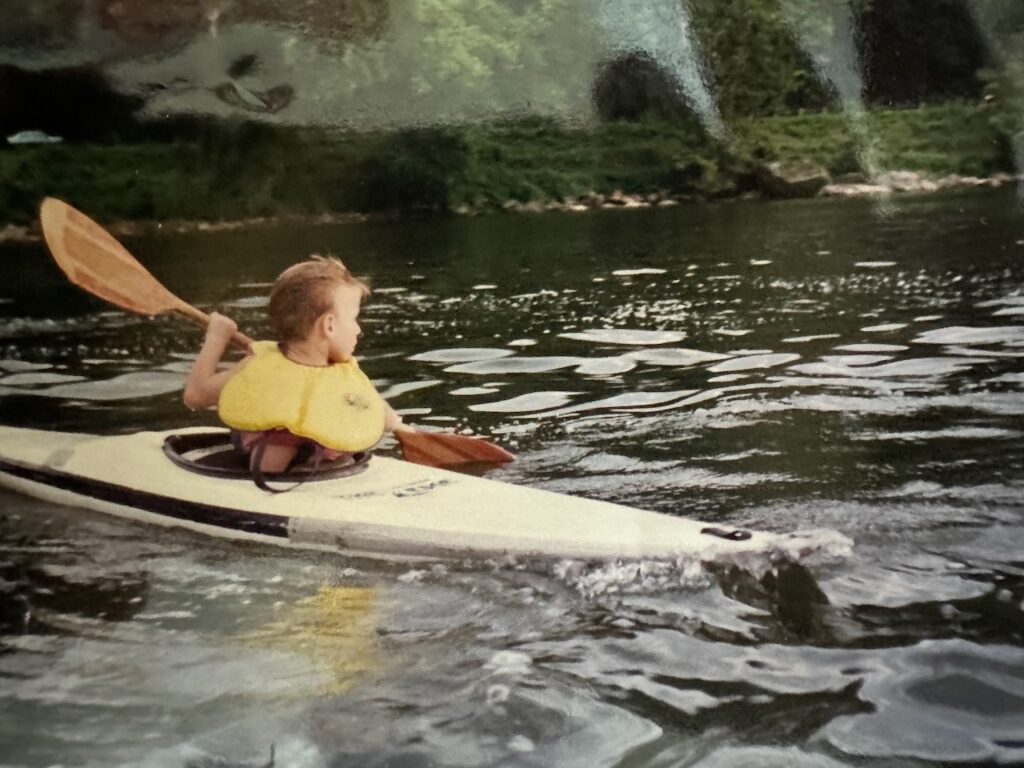
Dane learning strokes at 3. “spot target, lead with body, etc.”
Here are a few links to videos, or blogs below that you can use as references for “enhancing and extending your paddling career”.
Meanwhile- I will see you on the water!
🙂
EJ

